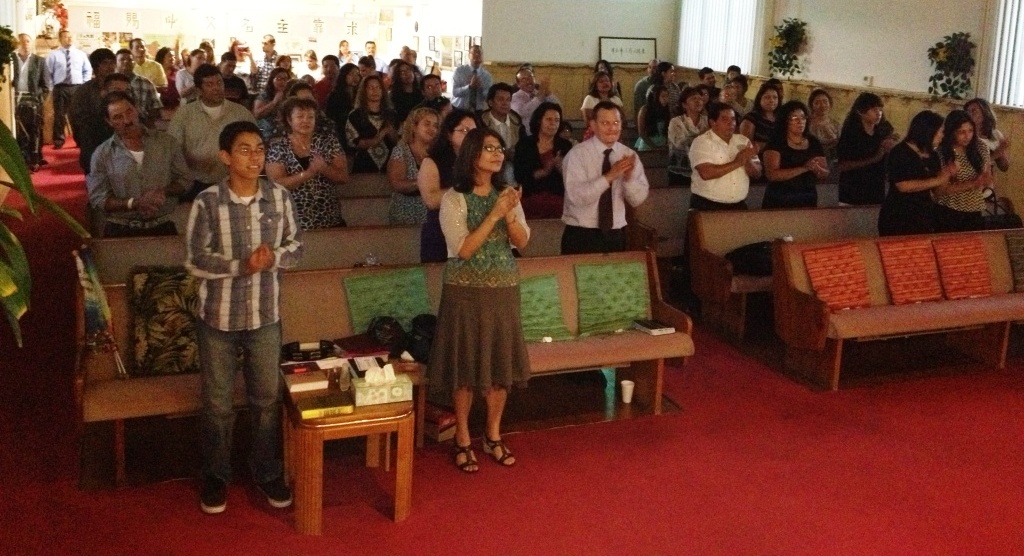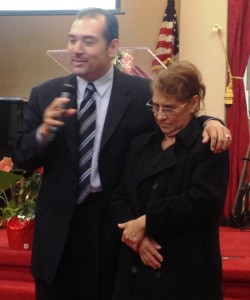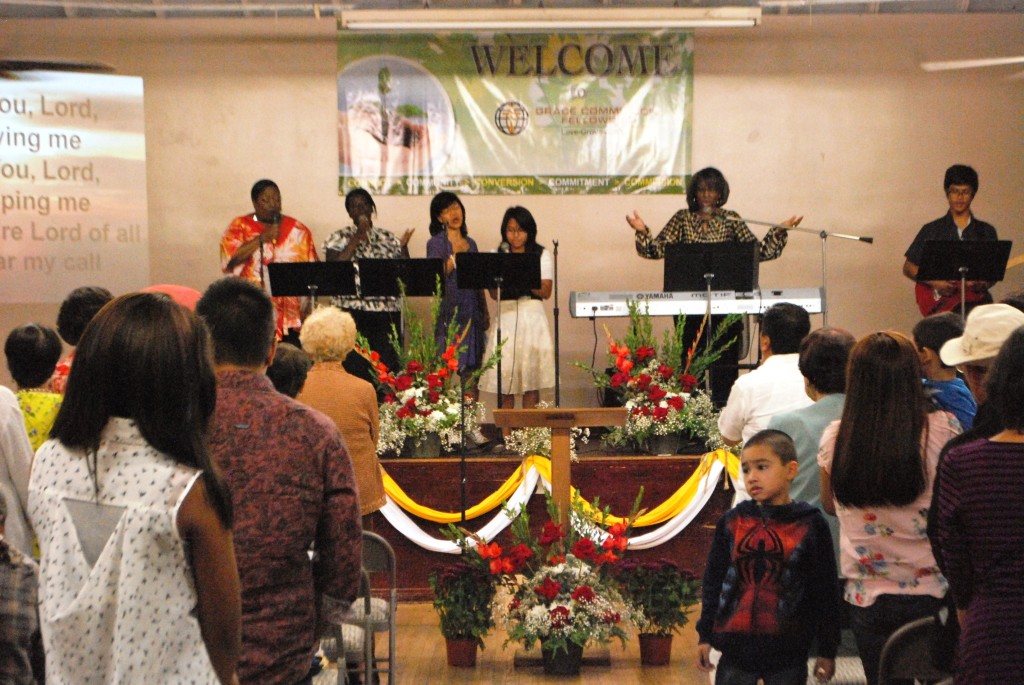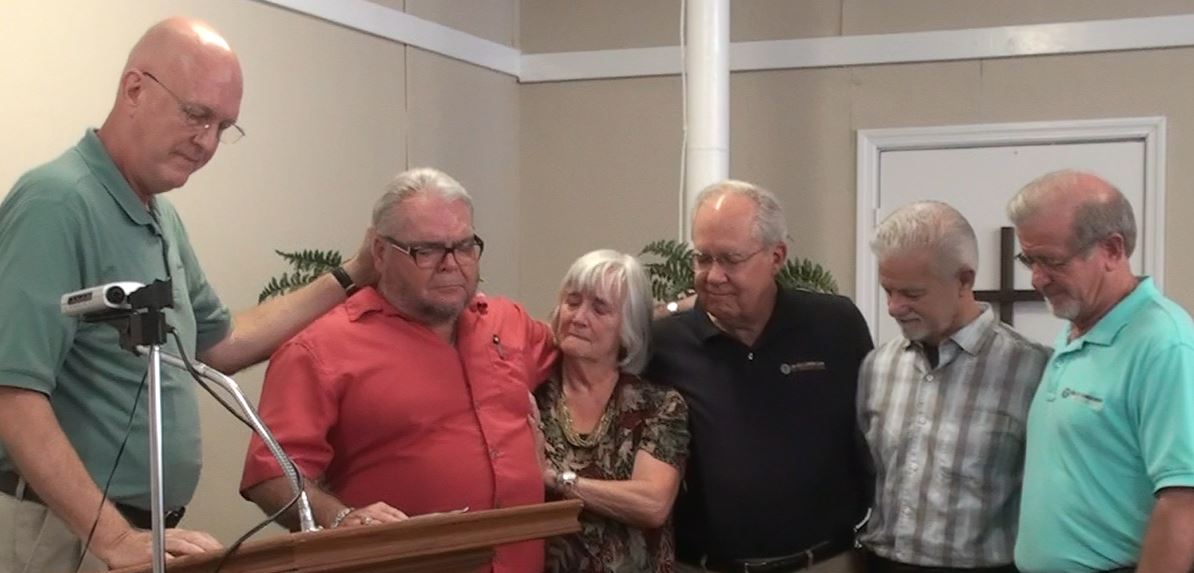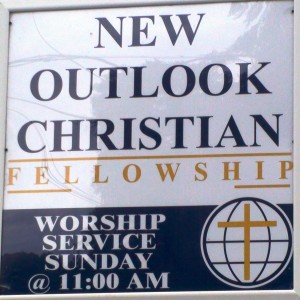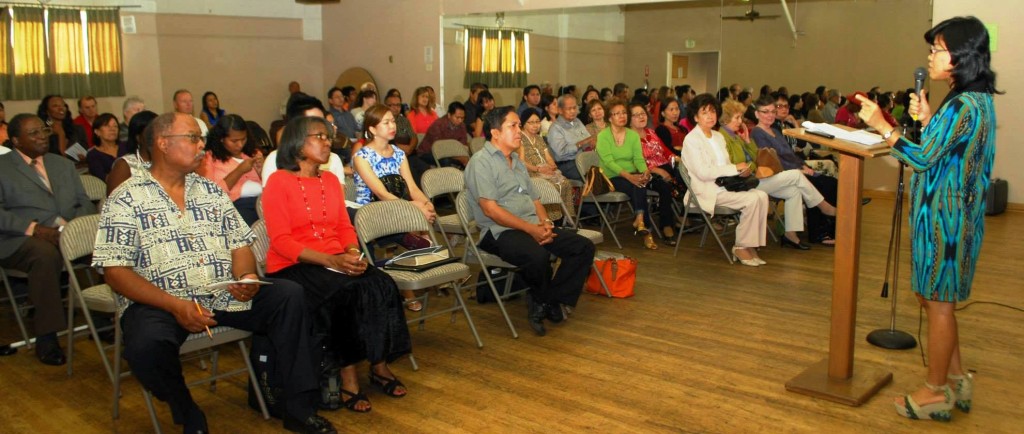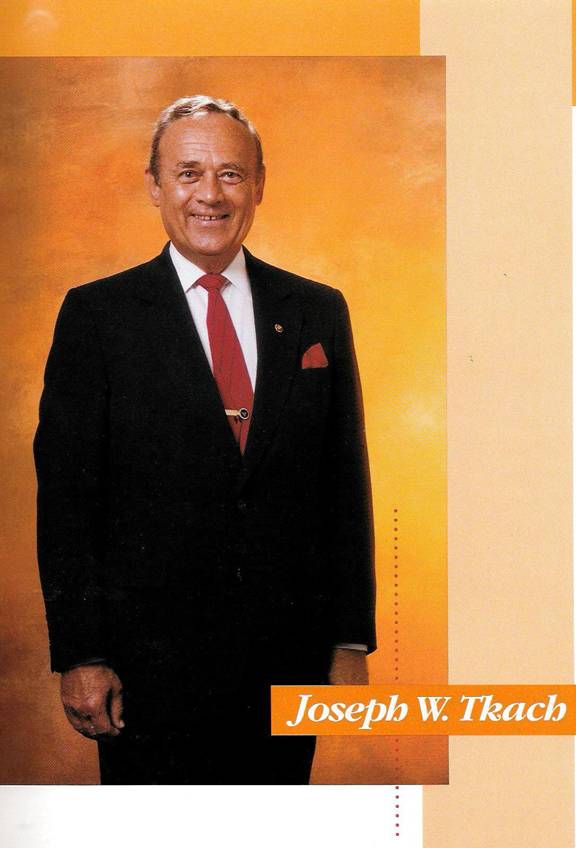By Gary Deddo
Sometimes I hear expressed a concern that we emphasize grace too much. The suggested corrective is that we should counter-balance teaching about grace with teaching about obedience, righteousness and other obligations mentioned in Scripture, especially those in the New Testament. I have been reflecting on this concern and think I might have something useful to offer concerning the nature of grace and our response.
For a related article entitled “Grace and Obedience,” click here. Also see Joseph Tkach’s cover letters in this issue and one published in September.
Part one: the nature of grace
A legitimate concern
Those who worry about extending “too much grace” sometimes have a legitimate concern. Sadly, some people teach that because we are saved by grace and not by works, it makes no difference how we live. For them, grace means no obligations, rules or expected patterns of relationship. For them, grace means that pretty much anything goes since it’s all forgiven beforehand. This erroneous view sees grace as a free pass—carte blanche permission to do whatever one wants. In my experience, most people who hold this view, or something like it, don’t go quite this far—they seem to know that there are some limits. However, some people do hold an extreme, and I believe unbiblical, view of grace.
Living without or against any laws or rules is known as antinomianism. This problem has been written and preached about throughout church history. Dietrich Bonhoeffer who was a Christian martyr under the Nazis, called it “cheap grace” in his book The Cost of Discipleship. Antinomianism is addressed in the New Testament. Paul referred to it when addressing the accusation that his emphasis on grace was encouraging people to “continue in sin in order that grace may abound” (Romans 6:1, NRSV). Paul’s reply was short and emphatic: “By no means!” (v. 2). Then a few sentences later he repeats the charge against him and answers it: “What then? Should we sin because we are not under law but under grace? By no means!” (v. 15).
But what is the real problem and solution?
There was no ambiguity in Paul’s response to the charge of antinomianism. Those who argue that grace means anything goes because it’s all covered are mistaken. But why? What’s gone wrong? Is the problem really “too much grace”? And is the solution to counter-balance grace with something else? Is that how Paul and the rest of the New Testament writers understood the problem? Was that how they sought to remedy it? I think the answer to both questions is clearly, “by no means!” The whole of the New Testament revelation, founded in Jesus Christ himself, identifies the nature of the problem and its solution quite differently. Paul did not change his message of grace and warned against those who would, especially in his letter to the Galatians.
Rather than being “too much grace,” the real problem is a misunderstanding of both grace and obedience. Ironically, those who worry about “too much grace” hold the same misunderstanding about grace as those who have no worries at all and so go merrily on their way without giving further thought to living a life of faithfulness to Jesus Christ and the instructions given in the New Testament. Their misunderstanding of grace trips them up and undermines their ability to live a life of joyful obedience in the freedom of Christ—a freedom and joy that both Paul and Jesus talk about.
It took me many years to get to the bottom of this issue, and I didn’t get there without a lot of help from others who I learned from, some in person and others through their writings. So let me now try to lay out what I found.
The problem is not too much grace nor is the solution to counter-balance grace with an equal insistence on obedience, works or service. The real problem is thinking that grace means God makes an exception to a rule, a requirement or an obligation. That is a common, everyday misunderstanding of grace. If grace involved merely allowing for exceptions to rules, then yes, a lot of grace would simply yield a lot of exceptions. And if God was said to be all-gracious, then, we could expect that for every obligation or responsibility God would make an exception. The more grace, then the more exceptions to obedience. The less grace, the fewer exceptions allowed. A nice clean proportion. If we have to allow some room for grace in this scheme, then the only question is where to put the balance between grace and requirements: 25/75? 50/50? 75/25?
Such a scheme perhaps describes the best that human grace can achieve. But note that this approach pits grace against obedience. It puts them at odds with one another—always pushing and pulling one another; back and forth, never really settling down since they fight against one another. Each one undoes or negates the other. Being in perpetual contradiction they have no hope of ever getting along. And so folks assuming that “this is just the way things have to be,” experience this tension within themselves. Externally their lives might look like a teeter-totter, tipping now on one side and then on the other. But fortunately such a scheme does not represent God’s kind of grace. The truth about grace sets us free from this false dichotomy.
God’s grace in person
Question: How does the Bible actually define grace? Answer: Jesus Christ himself is God’s grace to us. Paul’s benediction that ends 2 Corinthians refers to “the grace of our Lord Jesus Christ.” Grace is what God freely gives us in his incarnate Son, who in turn, graciously communicates to us God’s love and restores us to fellowship with God. What Jesus does towards us reveals to us the nature and character of the Father and the Holy Spirit. Scripture tells us that Jesus bears the stamp of God’s exact character (Hebrews 1:3). It says that “he is the image of the invisible God” and that “God was pleased to have all his fullness dwell in him” (Colossians 1:15, 19). He who has seen him has seen the Father and if we know him we will know the Father (John 14:9, 7).
Jesus explains that he only does “what he sees his Father doing” (John 5:19). He tells us that only he knows the Father and he alone reveals him (Matthew 11:27). And John tells us that this Word of God, who has existed from the beginning with God, took on a human existence and has shown us “the glory as of a father’s only son, full of grace and truth.” While “the law indeed was given through Moses; grace and truth came through Jesus Christ.” In fact, “from his fullness we have all received, grace upon grace.” And this Son who has existed in the heart of God from all eternity “has made him known” (John 1:14-18).
Jesus is God’s grace to us—revealing in word and in action that God himself is full of grace. Grace isn’t just one of the things God happens to do every now and then. Grace is who God is. God gives us his grace out of his own nature, the exact same character we meet in Jesus. He does not give out of a dependence upon us, nor does he give because we somehow obligate him to extend his good gifts to us. God gives grace because he has a giving nature. That means that God gives us his grace in Jesus Christ, freely. Paul calls grace a free gift from God in his letter to the Romans (5:15-17; 6:23 NRSV). And in his letter to the Ephesians he memorably declared: “For by grace you have been saved through faith, and this is not your own doing; it is the gift of God — not the result of works, so that no one may boast” (Ephesians 2:8-9 NRSV).
All that God gives us he gives freely out of his own goodness, out of his desire to do good to all that is less than and other than himself. God’s acts of grace have their source in God’s good, freely giving nature. So God continues to give freely of his goodness even when it meets up with resistance, rebellion and disobedience from his creatures. In response to sin, he freely gives his forgiveness and reconciliation in and through his Son’s atonement. God, who is light and in whom is no darkness, gives himself to us freely—in the Son, by the Spirit, so that we might have abundant life (1 John 1:5; John 10:10).
But was God always gracious?
Unfortunately it has often been explained that God originally (even before the Fall) agreed to give of his goodness (to Adam and Eve and then to Israel) only if his creatures fulfilled certain conditions (obligations) that he set out for them. If they didn’t, he would not extend much of his goodness to them. He especially would not extend forgiveness and eternal life.
This erroneous viewpoint sees God as having a contractual, if you-then I relationship with his creatures. That contract has conditions or obligations (rules or laws) that humanity must meet in order to receive what God is offering. According to this view, God’s primary concern is conformity to his rules. And if we don’t measure up, God will withhold his best from us. Worse than that, he will give us what is not good, what leads to death, not life; now and in eternity.
This erroneous view sees law as the deepest thing about God’s nature and thus the most fundamental aspect of God’s relationship with his creatures. He wills what he wills and only blesses upon our fulfillment of his will specified by certain obligations. This God is essentially a contract God who has a legal and conditional relationship with his creatures. He conducts that relationship in a slave-master way. In this view, God’s freely giving of his goodness and blessings, including forgiveness, is far from the essence or nature of this God. From this perspective, Jesus is viewed as showing us only one particular and isolated aspect of who God is. Jesus, in fact represents an exception to God’s rule and will, nature and character, not the fullness of God’s divinity. Jesus, then, only reveals and demonstrates what is non-essential to God’s nature and character. Regarding Jesus in this way ought to alert us to a serious problem.
Of course, if law actually was the most fundamental feature of God’s relationship to us, then grace could only be an exception to law. But, especially given the new covenant, it is clear that law is not the most basic way that God relates to us now. It never has been. God is not fundamentally sheer will or law. This is most clearly seen looking at Jesus who shows us the Father and sends us the Spirit. It is clear when we hear from Jesus about his eternal relationship with the Father and Spirit. Jesus tells us that his nature and character are identical to that of the Father’s. Indeed the Father-Son relationship is not one of rules, obligations or the fulfilling of conditions in order to earn or deserve benefits. The Father and Son do not have a legal relationship with each other. They have not drawn up a contract with each other where if one fails to complete his part the other will not fulfill his part. The idea of a contractual, law-based relationship between the Father and the Son is an absurdity. The truth, revealed to us in Jesus, is that their relationship is one of holy love, faithfulness, self-giving and mutual glorification. Jesus’ prayer in John 17 powerfully reveals that those triune relationships are the foundation and source for all God does in every relationship since God always acts according to who he is—because he is faithful.
As we read Scripture carefully, it becomes clear that God’s relationship with his creation, and even post-Fall with Israel, is not contractual—it is not one of conditionality. An important point to remember, one that Paul is clear about, is that God’s relationship with Israel was not fundamentally one of law, of an if-then contract. God’s relationship with Israel began with a covenant, a promise. The Law of Moses (the Torah) came in 430 years after the inauguration of the covenant. Given that timeline, law could hardly be regarded as the foundation for God’s relationship with Israel.
In the covenant, God freely pledged himself and his goodness to Israel. And as you will recall, it had absolutely nothing to do with what Israel could offer God (Deuteronomy 7:6-8). Remember that Abraham was someone who did not know God when God pledged to bless him and make him a blessing to all the nations (Genesis 12:2-3). A covenant is a promise—it is freely chosen and freely given. “I will take you as my people, and I will be your God” said God to Israel (Exodus 6:7). God’s pledge of blessing was unilateral—established from his side alone. God gave the covenant as an expression of his own nature, character and being. Its establishment with Israel was an act of grace—yes, grace!
A careful review of the early chapters of Genesis makes it clear that God does not relate to his creation according to some sort of contractual agreement. First, creation itself was an act of free giving. There was nothing there that deserved or earned existence, much less a good existence. God himself declares: “And it was good,” even “very good.” God freely extends his goodness towards his creation, towards what is far less than himself, giving it life. Eve was God’s gift of goodness to Adam so that he would no longer be alone. In like manner, God gave Adam and Eve the garden and the good purpose of keeping it so that they would experience fruitful and abundant life. Adam and Eve fulfilled no conditions before these good gifts were given freely by God.
But what about after the Fall, when sin entered? What we find is that God continues to give of his goodness freely and unconditionally. Was not God’s pursuit of Adam and Eve, giving them an opportunity to repent following their disobedience, an act of grace? Consider also how God provided animal skins for their clothing. Even their expulsion from the Garden was an act of grace, to prevent them from taking of the tree of life in their fallen state. God’s protection and provision for Cain can only be regarded in the same light. We also see grace in God’s protection of Noah and his family, and in his pledge of the rainbow. All these acts are of grace—freely given gifts of God’s goodness. None of them are rewards for fulfilling some kind of even minimal legal contractual obligation.
Grace as unmerited favor?
It has often been said that grace is God’s unmerited favor. Strictly speaking this is true. But given what we think it implies, it is just barely true. What is false about it is the assumption (almost always lurking in the background) that God originally intended for us to merit his favor. That is utterly false. God did not originally plan on us meriting his favor, but then gave up as he saw us fail. God did not abandon Plan A: Merited Favor for Plan B: Unmerited Favor. No—God never, from the foundations of the earth, wanted a contractual, conditional relationship with us. He never wanted a master-slave relationship. [1] Rather, he wanted all along for his children to have a relationship with him that mirrored as much as possible the relationship God the Father has with his Son in the Spirit.
God always freely gives of his goodness, of himself to his creatures. And he does so because of who he is, eternally and internally as Father, Son and Holy Spirit. All they do towards creation is an overflow of their inward life together. The acts mirror externally who God is internally, and so give him glory. A legal and contractual relationship with God would not give the triune creator and covenant-making God glory, but would actually obscure it, even deny it. It would make God into a mere idol. And idols always enter into contractual relationships with their appeasers because they need their worshippers just as much as the worshippers need them. They are mutually dependent. So they mutually use one another for their own self-centered ends. The only question is which “side” will win. The outcome of that competition is largely dependent upon which side is strongest, more powerful, and slightly less dependent than the other. But such a relationship is exactly what the God of the Bible completely repudiates. God is no idol and does not want the kind of contractual, conditional relationship with his people that idols demand. Idols must be appeased, but not the God of Israel and of our Lord Jesus Christ. [2]
The smidgen of truth hidden down under the saying that grace is God’s unmerited favor is simply that we don’t merit it. But the implication almost always accompanying that idea is false! God’s favor or blessing (his freely given goodness) was never meant to be merited. You can “unmerit” God’s blessing, but you can’t merit it and you never could. For if God extended his goodness to us because we merited it, that action would not be motivated by God’s own nature and character. Such goodness would not be freely given by a good God. Favor earned is not favor freely given. It is not grace!
The graciousness of grace demonstrated
Grace does not just come into play when there is sin, making an exception to some law or obligation. God is gracious whether there is or is not sin. In other words, God does not need sin to be gracious. However, grace continues when there is sin. So it is true that God continues to freely give of his own goodness to his creatures even when they do not merit it. He, then, freely gives forgiveness at his own expense of reconciling atonement.
Even when we sin, God remains faithful because he is faithful, just as Paul says: “If we are faithless, he remains faithful” (2 Timothy 2:13). Because God always is true to himself, he persists in extending his love and in pursuing his holy purposes for us even when we rebel and resist. This constancy of grace shows the depth of the freedom that God has to be good toward his creation. “For while we were still weak, at the right time Christ died for the ungodly….But God proves his love for us in that while we still were sinners Christ died for us” (Romans 5:6, 8 NRSV). Indeed, the special character of grace shines forth when it shines out in the darkness. And so we most often speak of grace in the context of sin. There is nothing wrong with that. But the problem comes when we think God’s favor was originally to be earned in a legal arrangement with him. Sin can’t stop God’s free giving of his goodness. He remains constant in character, nature and purpose. God is not dependent upon us to remain true to himself. We cannot make God freer than he is, nor by our rejection of his goodness can we take from him his freedom to be gracious.
So God is gracious without sin and God is gracious with sin. God is faithful in being good to his creation and maintaining his good purposes for creation. And we see this most fully in Jesus who cannot be stopped from completing his atoning work by all the forces of evil arrayed against him. Those forces cannot prevent him from giving up his life so that we could have life. No amount of pain, suffering and utter humiliation could deter him from carrying out his holy, loving purposes to reconcile humanity to God.
God’s goodness does not require evil to be good. But when it comes upon evil, goodness knows just what to do: overcome it, conquer it, and vanquish it. There is no such thing, then, as too much grace.
Part two: our response
In part one we looked at the nature of grace and saw that it is an expression of God’s own being as seen in Jesus Christ. This time we look at the connection of grace to the obedience that is our response to God’s freely given goodness.
So why the law (or any other commands)?
Given what we saw about grace, how then do we regard the Old Testament law and Christian obedience under the new covenant? If we remember that God’s covenant is a unilateral promise the answer more easily falls into place. A promise does call for a response from the one to whom it is made. However, the fulfillment of the promise does not depend upon this response. [3]
There are only two options here: to trust (have faith or believe) in the promise or not. The Law of Moses (the Torah) described for Israel much of what trusting God’s covenant should look like during its pre-fulfillment stage (prior to Jesus Christ). God graciously provided for Israel ways to live within his covenant (as it was expressed in the old covenant). The Law of Moses also described ways that were distrustful of God’s covenant promises to Israel. But what the Torah did not do is to prescribe how Israel might earn God’s favor and blessing—its purpose was not to define how to get God to make a promise and then how to keep him faithful to it.
The Torah was freely given by God to Israel. It was meant to help Israel. Paul calls it a “tutor” (Galatians 3:24-25 NKJV). And so it should be regarded as a good gift of God’s grace to Israel. The Law of Moses is given inside and under the old covenant, which was the covenant of grace in its phase as promise (awaiting the fulfillment in Christ within the new covenant). It was meant to serve God’s freely given covenant purpose to bless Israel and make her a channel of blessing to all nations.
God, remaining faithful to himself, desires the same kind of non-contractual relationship with those who live within the new covenant fulfilled in Jesus. He freely extends to us all the blessings of his atoning and reconciling life, death, resurrection and ascension. We’re offered all the benefits of his coming Kingdom. And even more, we are offered the blessedness of being indwelt by his Holy Spirit. But the offer of these gifts of grace of the new covenant calls for a response—the same kind of response that Israel was to give: faith (trust). But under the new covenant we trust in the fulfillment of God’s covenant rather than in its promise.
So what difference does the response to grace make? It is in answering this question that confusion often arises. If we are to benefit from the promise we must live on the basis of trusting it. This is what is meant by “living by faith.” We see faithful living exemplified by the Old Testament “saints” in Hebrews 11. Yes, there are consequences for not living out of a trust in the covenant promised or the covenant fulfilled. Distrust in the covenant and in the God of the covenant severely limits one’s experience of the covenant benefits. Israel’s distrust cut her off from the source of her life—her sustenance, health and fruitfulness. Distrust blocked her relationship with God to the point where she was unable to receive much of anything from God. And God did not want that, because he is gracious! Thus in Scripture we find strict warnings describing the dire consequences of living in ways that deny God’s faithfulness to his word of promise, thus preventing his people from receiving the freely given grace of God. Instead of blessings, what his faithless people receive is sometimes referred to as “curses.”
But even such warnings given to his people can be regarded as gifts of God’s grace. If God did not care about Israel and would just as soon cancel his covenant, there would be no reason for him to warn her at all. He’d just let her go and be done with it. But one of the consequences of living as if you were not in the covenant is not undoing it, not nullifying it, and not making God change his mind and go back on his promise. God cannot be tempted to be unfaithful to his promise.
God’s covenant, Paul tells us, is irrevocable. Why? Because God is faithful and will keep his covenant even when it costs him dearly! God will never go back on his word; he cannot be forced to act uncharacteristically towards his creation or his people. Even in our distrust of the promise we cannot make God to be untrue to himself. This is what is meant by God doing things “for his own name’s sake.”
Israel’s disobedience did indeed result in bad (even dire) consequences. But all of these occurred within the covenant, under God’s grace. Under the old covenant, God never abandoned Israel—never went back on his covenant promises. From time to time, God renewed his covenant with Israel, always leading up to the fulfillment of the covenant in Jesus Christ.
And it is the same under the new covenant. All the instructions and commands we find there are meant to be obeyed by faith in God’s freely given goodness and grace. That grace reached its high point in God’s self-giving and self-revelation in Jesus. To be enjoyed, God’s good gifts must be received, not rejected or ignored. The imperatives (commands) found in the New Testament describe what receiving or trusting in God’s grace looks like for the people of God living after the establishment of the new covenant.
Where does obedience come from?
So where then does obedience come from? It arises out of a trust in God’s faithfulness to his covenant purposes fulfilled in Jesus Christ. The only obedience that God is interested in is the obedience of faith—faith in God’s constancy, in God’s faithfulness to his Word, faithfulness to himself (Romans 1:5; 16:26). Obedience never was and never is an attempt to fulfill conditions to get God to be faithful, to make God more likely to be good, to get God to be (freely!) gracious. Obedience is our response to grace. Paul is clear on this—especially where he tells us that Israel’s failure was not that she did not fulfill certain legal conditions of the Torah, but that she “did not strive for it on the basis of faith, but as if it were based on works” (Romans 9:32 NRSV). Paul, a law-keeping Pharisee, came to realize the astounding truth that God never wanted him to work up a righteousness of his own through keeping the law. What good would that be even if it were possible (which it is not)? Compared to the righteousness that God intended to give him by grace, compared to having a share in God’s own righteousness given to him in Christ, it would be garbage (or worse!)–see Philippians 3:8.
All along, God intended to share his own righteousness with his people as a gift of grace. Why? Because God is gracious! (Philippians 3:8-9). So how do we receive this freely given gift? By trusting God for it, by having faith in his promise to provide it. Trying to work for or earn that gift—trying to meet certain legal conditions, trying to conform to specified obligations in order to earn God’s blessings actually indicate distrust. They indicate unbelief in God’s freely given grace.
The obedience that God is looking for is motivated by faith, hope and love for God. The calls for obedience described for us throughout Scripture, the commands found in the old and new covenants, are those of grace. They are not conditions of grace. If we believe in God’s promises and trust in their fulfillment in Christ and then in us, we will want to live in, under and by those promises, as if they are indeed true and trustworthy. If we are not living in a way that expresses trust in God’s grace—his being good to us even when we don’t deserve it—then we’re not really trusting in God’s grace!
The obedient life is a trusting life. A disobedient life is one that is not trusting or perhaps does not (yet) want what is promised. Only obedience that arises out of faith, hope and love gives God glory, for only that kind of obedience bears witness to the truth of who God actually is, as revealed to us in Jesus Christ.
God will continue to be gracious to us whether we receive or resist his grace. Of course part of his graciousness will be to resist our resistance to his grace! That’s the nature of God’s wrath as he says “No” to our “No” to him in order to reaffirm his “Yes” to us in Christ (2 Corinthians 1:19). And God’s “No” is just as strong as his “Yes,” because it is an expression of his “Yes.” Those who do resist God’s grace will not experience the benefits of living by faith. However, they will not, by that unbelief, stop God from being true to himself, from being the gracious God that he is.
Grace makes no exceptions!
It’s important to realize that God makes no exceptions to his good purposes and holy aims for his people. Because he is faithful, God will not give up on us. Instead, he loves us to perfection—the perfection of his Son. God intends to glorify us so that we perfectly trust and love him with all that we are and have, and so live out our trust in his graciousness to the full. Doing so means that our distrusting hearts will be done away with so that our lives perfectly reflect our trust in God’s freely given goodness. God’s perfect love will love us to completion by justifying us, sanctifying us and finally glorifying us. “He who began a good work in you will carry it on to completion” (Philippians 1:6).
Would God be gracious to leave us, in the end, less than whole? What if heaven were filled with individuals for whom exceptions were made—allowing for a lack of faith here, a failure of love there, a bit of unforgiveness here, some bitterness and resentment there, a mite of jealousy here and a mote of selfish pride there? What would that be like? Well, it would be just like it is here and now, but forever! Would God really be gracious to leave us in such an “exceptional” condition for all eternity? No he would not! In the end, God’s grace allows for no exceptions to his ruling grace, to the rule of his love, to the sovereignty of his loving will—because otherwise he would not be gracious.
What can we say to those who abuse God’s grace?
How might we answer those who say that they can do whatever they like since we’re under grace and not law? Perhaps we can point out that living a lawless life that is devoid of trust in God, resists the grace of God. Perhaps we can help them understand that to presume upon grace is to not receive it, and thus to experience few of its benefits.
As we disciple people in the way of Jesus, we should help them to understand and receive God’s grace, rather than to misunderstand and pridefully resist it. We should help them to live in the grace that God is extending to them right now. We should help them to know that no matter what they do, God will continue to be true to himself and true to his good purposes for them. We should help them to trust in the fact that because God loves them and is gracious in his own nature, character and purpose, he will resist any resistance to his grace so that one day we all might fully receive and thus live by his grace and so gladly take on joyfully the “obligations” of living in grace, knowing the privilege it is to be a child of God with Jesus Christ as our elder brother.
[1] An even worse explanation is that God wanted us to believe the falsehood that he wanted a conditional relationship with us, where we merited his favor, so that when we failed, which he knew we would, we would come to see that we could not merit it. Thus it turns out that he never did really want a conditional relationship with us although he had to make us believe that he did.
[2] See for example Isaiah chapters 1 and 66 and Hosea chapters 4-14 for God’s complaint about sacrifices given to God to appease him as if he were an idol.
[3] The idea of an inheritance conveys the same sort of understanding. The giving of an inheritance does not depend upon its reception. It is given and therefore possessed in a certain way even before it is received. Found in the practices of Israel, the idea of an inheritance is also used to speak of God’s ultimate blessings at numerous key points in the New Testament. See Galatians 3:18; Ephesians 1:11; Colossians 3:24; Hebrews 9:15.




